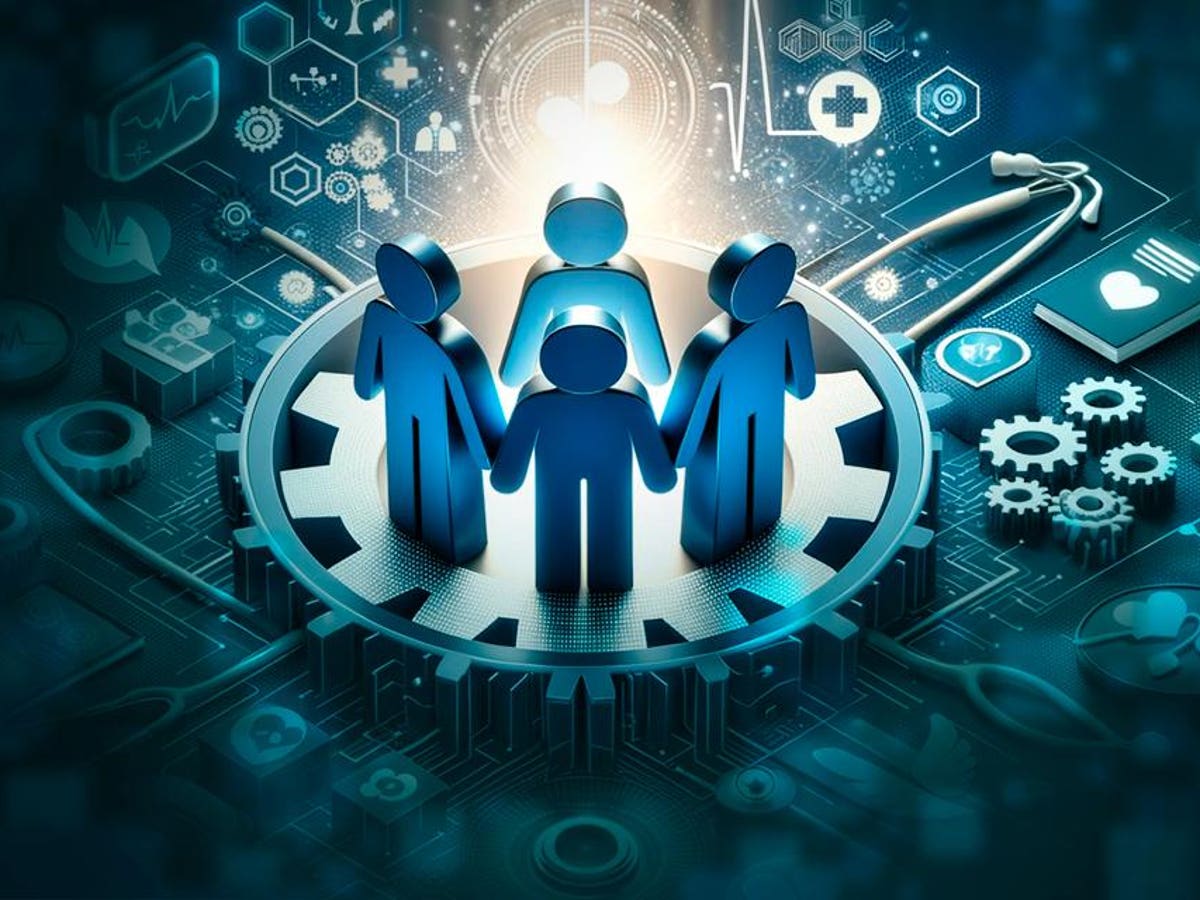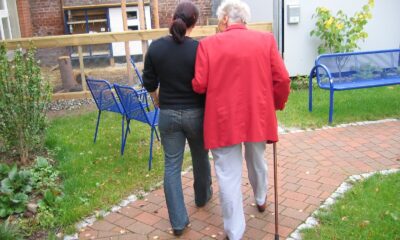Health
Better care requires honoring individuality

Discover how honoring individuality in healthcare can transform patient care and leadership. Discover … [+]
“The [hospital room] The environment for the family and the patient is as important as the treatment of the disease, the assessment and the follow-up.”
—Raelene Brooks, dean of the College of Nursing at the University of Phoenix
When I help a company make a major change, I always ask whether they think change starts with the environment (the overall organizational culture) or with individuals. It’s a version of the chicken and the egg question. An individual leader who wants to take a more personal approach may encounter organizational systems that get in the way because those systems do not take into account what is important to the individual (i.e. values, beliefs, capabilities, etc.). Likewise, new organizational systems will only be successful if individuals are ready and willing to use them.
So I made a deep connection with the wisdom shared during the Healthcare in the Age of Personalization Summit 2024 by Raelene Brooks, Ph.D., Dean of the College of Nursing at the University of Phoenix. She helped me open the second day of the summit with a conversation that bridged the employee-focused topics of day one with the patient-focused themes of day two, revealing the importance of personal history in helping us honor each other’s individuality.
This article is the eighth in a fourteen-part weekly series, in which I share insights from the top. We heard from a wide range of healthcare experts: leaders from all facets of healthcare organizations, from the boardroom and the C-suite to the patient’s bedside. We covered topics such as why personalization is important, how we can shape our organizational cultures to facilitate it, what leadership skills are needed, how personalization is achieved when people know they matter, and how to inject personalization into your employer brand.
During this session I interviewed Dr. Brooks. She has worked in nursing for 30 years, including more than 17 years as a bedside nurse in a Level 1 trauma unit in downtown San Diego, before transitioning to education and earning a doctorate. in nursing.
“My mother was a third grade teacher and my brother is a seventh grade teacher of autistic children. I think teaching is just innate,” she said. “I spent a lot of time in my younger years thinking and wondering how I could have a greater impact in nursing. I taught all the new graduate nurses as they boarded the trauma unit, and I realized the reach is greater [as a teacher].”
Dr. Brooks said she also came to see the barriers and limits in how nursing education focuses on essential skills related to delivering quality care while ignoring important skills related to knowing how to express someone’s full humanity can see.
Why is that skill so important? Because recognizing patients for the individuals they are – including their values, fears and family dynamics – can pave the way for a more inclusive and effective approach to personalized healthcare.
Personal history is important
The education of Dr. Brooks taught her how to navigate individuality amid differences.
“My father joined the U.S. Navy in 1963, and at the time, immigrants from the Philippines were only allowed to be stewards of the U.S. Navy officers. He had twelve brothers and sisters and a widowed mother, and he did this to help support them.”
Later, her grandmother immigrated to the United States at the age of 51 and knew only three English sentences: yes, no and thank you.
“My father was stationed at the Naval Postgraduate School at the time,” she said. “He was able to rise up and come through the Navy system, becoming an engineer through hard work and, I’ll be honest, through a lot of discrimination in the system.”
She said he was able to take six siblings with him and that they, along with her grandmother – ten people in all – shared a small house in Monterey, California.
“You can imagine there were 10 people living in the house and there were multiple generations – compassion and respect for each other was needed,” she said. “I learned that early on. And that has really translated into my nursing practice.”
I share so much of her life story because our personal history tells so much about who we are and how we work. But we’re not often encouraged to bring those parts of ourselves to the workplace.
Going beyond the boundaries of what we learn at school
Dr. Brooks shared a story that showed how personalization can empower healthcare providers to confidently advocate for unique patient needs. She remembered Ernie, a former ICU trauma patient who ended up in the emergency room at least twice a month.
“As a young trauma nurse in the ICU, I remember Ernie,” she said. “He was a veteran. He was retired. He always came through the ER because he fell off a very high bar stool while drinking in a bar near the hospital. Long-term drinking can cause some brain shrinkage. He would [fall and] He hit his head and we had to put him through the CT scan and all the tests to make sure he didn’t have a brain bleed. After four or five times, I said to the EMTs who brought Ernie in, “Can you please ask the people at the bar to put him in a chair?” They didn’t.”
Ernie ended up back in the ER.
“One day after work I walked to the bar in my scrubs and said, ‘My name is Rae. I’ll take care of Ernie. I want you to put Ernie in a chair so he doesn’t fall so high off the ground. I rarely saw Ernie anymore. That gave me a lot of strength, and so did I [realized] there is a way I can really make a difference beyond the confines of what I learned in nursing school.
The nursing school focuses almost exclusively on policy and procedure.
“It’s limiting and defining,” Dr. Brooks said. “What we don’t learn is the part about family and how practices are very different in each family. And you have to be respectful and understand what background patients come from, and why twelve people in a code blue want to be in the room, or three people want to sleep in the room with the patient.”
In the previous articles in this series, which summarized previous sessions of the summit, a key recurring message was that our healthcare organizational systems have depersonalized us. We spend so much time learning the technical details of our roles – whether we’re doctors, nurses or even administrators – but we don’t take the same approach to developing the ability to see patients and employees in their full humanity. That’s a skill that doesn’t necessarily come naturally. We must cultivate it.
“We teach policies, procedures, safety, how to administer, how to treat and assess,” said Dr. Brooks. “But the caring and compassion part, we thought the students would already come up with that. Frankly, we have to learn.”
When Dr. Brooks was a new professor, she made rounds at the clinic with ten students. She walked into a patient’s room and saw that it was messy. She took the nursing student aside to ask how he thought the patient was doing. The student responded by telling her everything he had done: the standardized list of things a nurse would need in that situation.
“I told him, ‘Excellent, great work.’ Now let me ask you something. Can you do me a favor and inspect the room?’
Dr. Brooks described that there were tissues, cups and straws on the floor in the room, and that the patient was untidy. She asked the student: If this were your family member, how would you feel walking into that room? Once again, the student only saw what he was trained to see and said the patient “looks good, he’s safe, his vitals are stable.”
He relied solely on the medical model. Focusing on the medical model is of course good, but it is incomplete.
“I said, ‘Okay, but let’s talk about the environment. Would you want to walk into the room and see your mother or your father in that environment? Remember, we are in the business of holistic healing. We want to provide an environment in which patients can heal and get better. And I don’t believe that’s the environment your patient is in right now.
Dr. Brooks said that if she could make a big impact, she would want “the environment for the family and the patient to be as important as the treatment of the disease, the assessment and the follow-up. That is a mission of compassion, a mission of caring and seeing healing in the bigger picture.”
Watch this short video to learn more from the panel.
Next time: Navigating the unknowns of healthcare.











